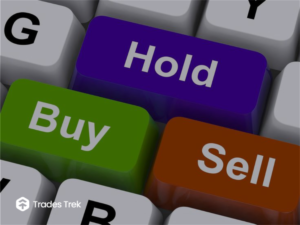The development of technology has facilitated and widened access to stock investing. Executing your investments in person at a stockbroker’s office is no longer typical. By purchasing and selling securities like stocks and bonds, you can invest your money while reclining in the comfort of your own home. Additionally, compared to a traditional broker, whose expenses are higher, using an internet broker gives investors more options to trade for less money and with less cash. However, since it is entirely online and there is no help from a third party, finishing the trade, as in the case of a typical stockbroker, becomes challenging and dangerous if done correctly.
Because of the potential hazards, selecting a broker to handle your brokerage account requires thought. To choose the best broker, you must be able to respond to a few questions because your investment style will influence your choice of broker greatly.
This article will discuss choosing the proper broker to meet your investment goals and position yourself for success in the stock market. Let’s define a broker and a brokerage account before going further.
Who are Brokers?
A broker is a person or business that acts as a middleman between a trader and the securities they want to purchase, sell, or trade.
What is a Brokerage Account?
An agreement between an investor and a broker where the broker places and processes trade on the investor’s behalf in exchange or token is known as a brokerage account. Different brokerage firms provide other options to open a brokerage account, ranging from expensive full-service stockbrokers to inexpensive internet discount brokers.
Investors can choose the model that best satisfies their financial needs from various brokerage accounts and companies. Order execution times, analytical tools, the range of tradable assets, and the degree to which investors can trade on margin are all variables that can vary between brokerage accounts.
The most fundamental account in any brokerage is a cash account. This account enables customers to purchase investments using funds deposited into their accounts. However, you cannot trade options, sell short, buy on leverage, or benefit from other, more complex products. You need a margin account to do that.
You can borrow money from your brokerage for additional purchases if you have a margin account. Your account’s securities act as collateral. If the securities in the account lose too much value, the brokerage may instantly ask for more money from you and impose common maintenance interest on this loan. A margin account is the name for this request. Your broker can be required to sell stocks in your account if you can’t meet a margin call.
With so many brokerage accounts available, choosing one that fits your financial goals can take time and effort. Doing so can be the difference between an exciting new source of income and a discouraging letdown. Before choosing a brokerage account, consider what you need to watch out for if the goal is to have an exciting new source of income.
Recognize Your Needs
Picking a brokerage account randomly without thinking about your investment objectives (beyond just gaining money) will only result in losses. For example, a newbie investor will require a brokerage account with basic instructional materials that are simple to access, support personnel, and a “practice trading session” before beginning with real money. You must set aside time and comprehensively list what is most important. A seasoned investor who is knowledgeable about investment would experience something else. Always be honest about where you are in your investment learning curve. If you can answer the following question, you understand your needs correctly.
- Do you want to make short-term or long-term investments?
- Do you like to invest as a passive or active investor?
- Are you prepared to pay one to manage your portfolio?
- Which securities do you wish to concentrate on?
- How much time, work, and energy are you prepared to devote to your investment?
Select a Regulated Broker
Before being qualified to conduct business, a broker must pass specified qualifying examinations and obtain a license from the state securities authority. These precautions help to prevent falling into the wrong hands. You invest to gain financial gain, not to lose it.
Be Cautious to Know the Fees
A brokerage fee is a commission given to a broker or salesperson to sell securities or insurance, as appropriate. Although it could be a fixed fee, the cost of this fee computes as a percentage of the transaction price.
There are a lot of costs involved when trading in shares. They include brokerage fees, service taxes, stamp duties, and security transaction taxes. They learn about their cost structure before investing with the brokerage to make the most of their money.
Know the Track Record and How Reliable the Brokerage is.
The quantity of trading accounts keeps rising quickly. As a result, it’s crucial to understand the history of the brokerage account you intend to utilize. Before investing, learn more about the company, review the reviews, and determine its trustworthiness.
To Wrap Up
The internet has improved information access. Thus it is wise to take advantage of it. Do extensive study before making a stock investment. Be confident that your investing path heads in the proper direction with the advice provided in this article.




